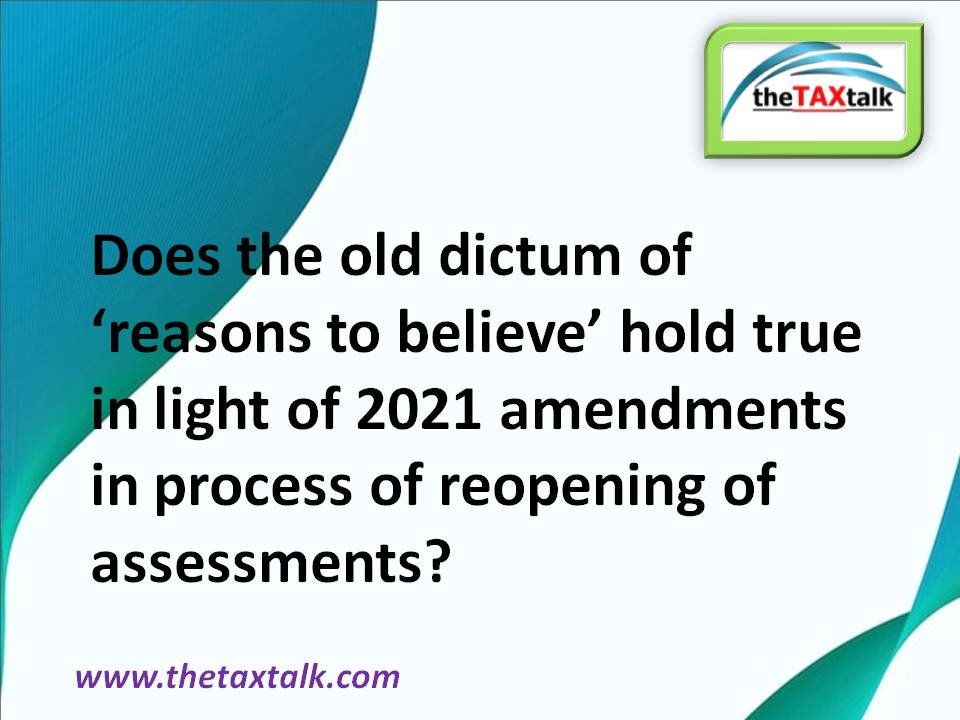![]()
Does the old dictum of ‘reasons to believe’ hold true in light of 2021 amendments in process of reopening of assessments?
Introduction:
1. “Reason has always existed but not always in reasonable form”-Karl Marx.
2. Similarly we can say that reasons also exists but not always reasons to believe.
3. Reason to believe have always formed an integral and crucial part of assessments under the various statutes.
Reason to believe in the context of reopening of assessment U/S 148 of the Income Tax Act:
1. Under the new reassessment provisions, the Assessing Officer is required to possess ‘information’ which suggests escapement of income.
2. By way of the amendment made by the Finance Act, 2021, the ‘reasons to believe’ was done away with and a new phrase ‘possess information’ was introduced which increased the scope for the revenue to reopen the cases.
3. Such information with the Assessing Officer has to suggest that the income of the assessee chargeable to tax has escaped assessment.
4. Thereafter, a valid notice under Section 148 reopening the assessment of an assessee can be issued.
High Court judgements on possession of information:
1. Hon Bombay HC in the case of Standard Industries Ltd (WP No. No. 6725 of 2022) has held that notice for reopening of assessment cannot be issued where the AO is not in possession of new information between the date of order of assessment U/S 143(3) of the Income Tax Act and the date of notice U/S 148.
2. Hon Rajasthan HC has held in the case of Chaturbhuj Gattani (D.B. Civil Writ Petition No. 10866/2023) With the amendment in Sections 147, 148 and insertion of Section 148A vide Finance Act 2021 w.e.f. 1.4.2021, the assessment/reassessment proceedings can be initiated by the Assessing Officer on receiving information only. In other words, the requirement of Assessing Officer of having “reason to believe” is no more there for initiating assessment/reassessment proceedings.
High Court judgements on change in opinions:
1. Hon High Court of Delhi in the case of Seema Gupta v.Income-tax Officer,[W.P.(C) 10740/2022] has held that there was a sliver of hope that the historical safeguard of ‘change of opinion’ would be read into the amended provisions of Section 147/148 of the IT Act.
2. Similar judgements were held by the Bombay HC and Karnataka HC have held that reassessment proceedings cannot be commenced in the new regime merely on account of a change in opinion.
Conclusion:
Merely because ‘reason to believe’ has been done away with in the new provisions, does not give the AO license to reopen any case simply because he has reasons to do so. The AO should have material new information in his possession for issuing notice for reopening of assessments.
Note: Before issuing notice, the AO also has to complete the procedure specified in Sec 148A of the Income Tax Act.
The copy of the order is attached herewith:
Standard-Industries-Limited-Vs-DCIT-Bombay-High-Court


